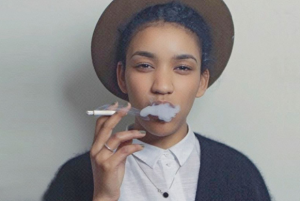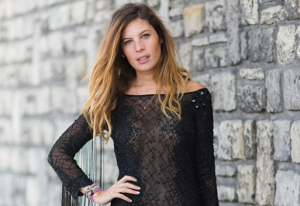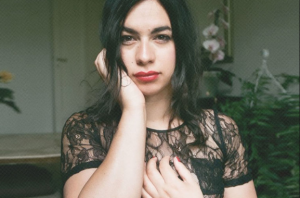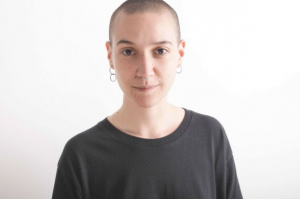On August 24, a woman on a beach in Nice, France was forced by a group of armed police officers to remove her clothing which resembled that of a burkini. An innocent woman was publicly humiliated and has highlighted the escalating oppression of the Muslim minorities in France. The ban on the burkini has since been lifted, but the stigma surrounding Muslim women continues.
Five Parisian women, all of, North African descent, gave their opinion regarding the burkini debate, as well as the attitudes towards Muslims and Arabs in Europe, and their vision for a multicultural France.

Sonia Ahminou
Sonia Ahminou, 27, French of Moroccan descent: Leather goods artisan for Louis Vuitton, Hermès, and Moynat, she now has her accessories brand, ASWAD. – Sonia found the burkini incident to be “extremely violent,” saying that it is nothing new for women to cover up their bodies when going to the beach. Some may have the misconception that by banning burkinis, women will simply change to bikinis. This is, however, not the case for Muslim women, who Sonia says will stop going to the beach.
She spoke of how France hides behind its “so-called secular culture” to keep minorities under control. She says that France is a predominantly Catholic nation where she grew up feeling like a second –class citizen, who as a woman of Arabic descent, was expected to be quiet and discrete.

Imen Ghouali
Imen Ghouali, 34, Parisian of Algerian descent: Documentary director, author of Le Gang des Souris Vertes. – Souris feels that by asking a woman sporting a burkini to undress sends out the following message: “See, the country hates you and is even ready to humiliate your mothers publicly.”
Souris says that she was recently grabbed by a man on the bus, but had to think twice about how she reacted, as screaming would only lead people to think, “Watch out for the hysterical Arab girl.” She says that for her, modernity is proving that the stereotypes are wrong: She likes to take the bus to work wearing a short skirt as others glance at her thinking that they have her all figured out. Little do they know that she is on her way to direct a prime time television show, and for her, this is what true empowerment is all about.

Sofia Guellaty
Sofia Guellaty, 33, Tunisian: Former EIC of Style.com/Arabia, now a fashion consultant in the Middle-Eastern market – Sofia is not impressed by the French’s reaction to the burkini, saying that modesty is a basic human right and common among many cultural traditions. She has lived in New York, Tunis, and even Dubai where she says that they are not nearly as aggressive towards their minorities as they are in France.
A country like France makes the veil seem more like a “provocation, of true anti-establishment.” There it is similar to that of a punk expression. Sofia says that it is tempting for her to wear a hijab to the next Paris Fashion Week, to see what reactions she gets. Being a fashion editor herself, she is aware of the freedom which women get by just being able to cover up.

Naelle Dariya
Naelle Dariya, 29, a transgender woman of Algerian and Italian descent: Organizes queer evenings in Paris – Naelle states that the whole burkini issue promotes the idea of every Muslim woman being a calm, passive person who is bullied by her husband and does not acknowledge that covering up may be a personal choice for them. She is transgender and started her life in France as a male where she was seen as a thug or a drug dealer. She has also found that in France, anyone who does not fit the profile of a normal, white individual will be subjected to some form of oppression or other.

Lara Abdessalem
Lara Abdessalem, 26, Tunisian and Dutch: Works in the independent film industry – Lara says that the most difficult point regarding the burkini issue, is how it ignores the fact that women in large cities are not safe and cannot just go walking home late at night in a short skirt, and this has no connection to Islam at all.
She grew up in Toulon, lived in Marseille and Brussels, and now lives in Paris. She says that discrimination in France encourages a sense of community and religiosity as a means to resist the system which breaks down rather than celebrates differences. Lara sticks out among her family members with her shaved head ad tattoos, but is fine with it, as she says she is a product of the community in which she is living.
